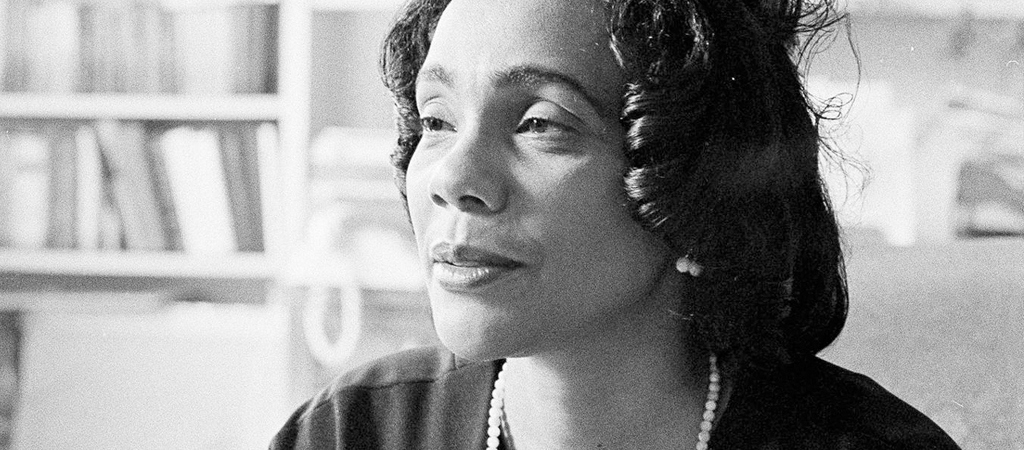Coretta
*from A.J. Swoboda’s book A Glorious Dark
* * *
I think of the Christmas my mom and I flew to Atlanta to visit my dad while he was in treatment. Near the end of our visit, we walked around old downtown Atlanta on a Sunday morning. We entered this old church building that Mom said was famous. It was my very first, however fleeting, experience of being a racial minority—we were the only white people in the whole place. I learned at that point in my life that black people seem to love God way louder and more rhythmically than white people do.
Black people worship with their moving bodies, white people with their straight faces.
They danced like God was there.
I remember how long the service was—something like three hours. A couple of years ago, my pastor-friend Geoff Holsclaw told me that African American churches meet for three hours because they’ve spent all week being told by society that they are nothing and need three hours to be reminded that they’re something. I guess that’s why Anglos do church for one hour—they’ve been telling themselves all week long that they’re everything and can only handle one short hour a week being reminded that they’re nothing.
As the service ended, we began to walk out of the foyer to enter the crisp winter Atlanta air. Then we were interrupted. Behind us, in a great sea of worshipers, we heard the jarring sound of a woman’s voice that seemed to be directed at us. “Come back here,” it echoed from the foyer. I looked up at my father. He was confused too. We then saw a distinguished, older African American woman walking toward us. The sea of people parted, making room for her like she was the lead in a musical getting ready to deliver her solo.
She walked up to my mom first. Standing nearly a foot shorter, she gingerly grabbed her by the shoulders and seemed to whisper in a quiet voice, “I wanted to thank you for coming to my church.” She turned to my father and said nearly the same thing. Then she stooped down to me. I remember the look in her eyes. There were years in those eyes. Tears. Laughs. Losses. Joys.
And the woman told me how much it meant to her that I’d come to her church.
We left the old, famous church. Standing out front, I looked up at my dad. His eyes were full of tears. I looked up at my mom. She was crying. I couldn’t put it together. I asked why they were so sad. My father told me, holding back his tears, that I should never forget what had happened. I said I wouldn’t, but I didn’t know why.
Then he told me who she was.
Her name was Coretta Scott King.
I’ve thought about that experience over the years with growing awe. How could a woman who had been hurt by so many white people, bombed by racists, endlessly maligned, publicly harassed, and persecuted, and who had lost her husband, Dr. Martin Luther King Jr., to a crazed assassin, be so gracious and generous to a family like my own?
A Christ follower is like that.
We choose to let our hurts and pains make us more generous and gracious than mean and malevolent.
Jesus was like that. When Jesus hung on the cross dying at the end of a period of deep suffering, he offered forgiveness… which is what we’re called to do to those who have truly hurt us.
Reconciliation isn’t extra credit—it’s the whole course.


wow.
What Angela said.
What a great lesson!
“Reconciliation isn’t extra credit—it’s the whole course.” Sometimes I can hardly forgive the people who’ve hurt me – for stuff way below this bar of suffering. Got a lot of work to do to live up to this example. Or anywhere close.